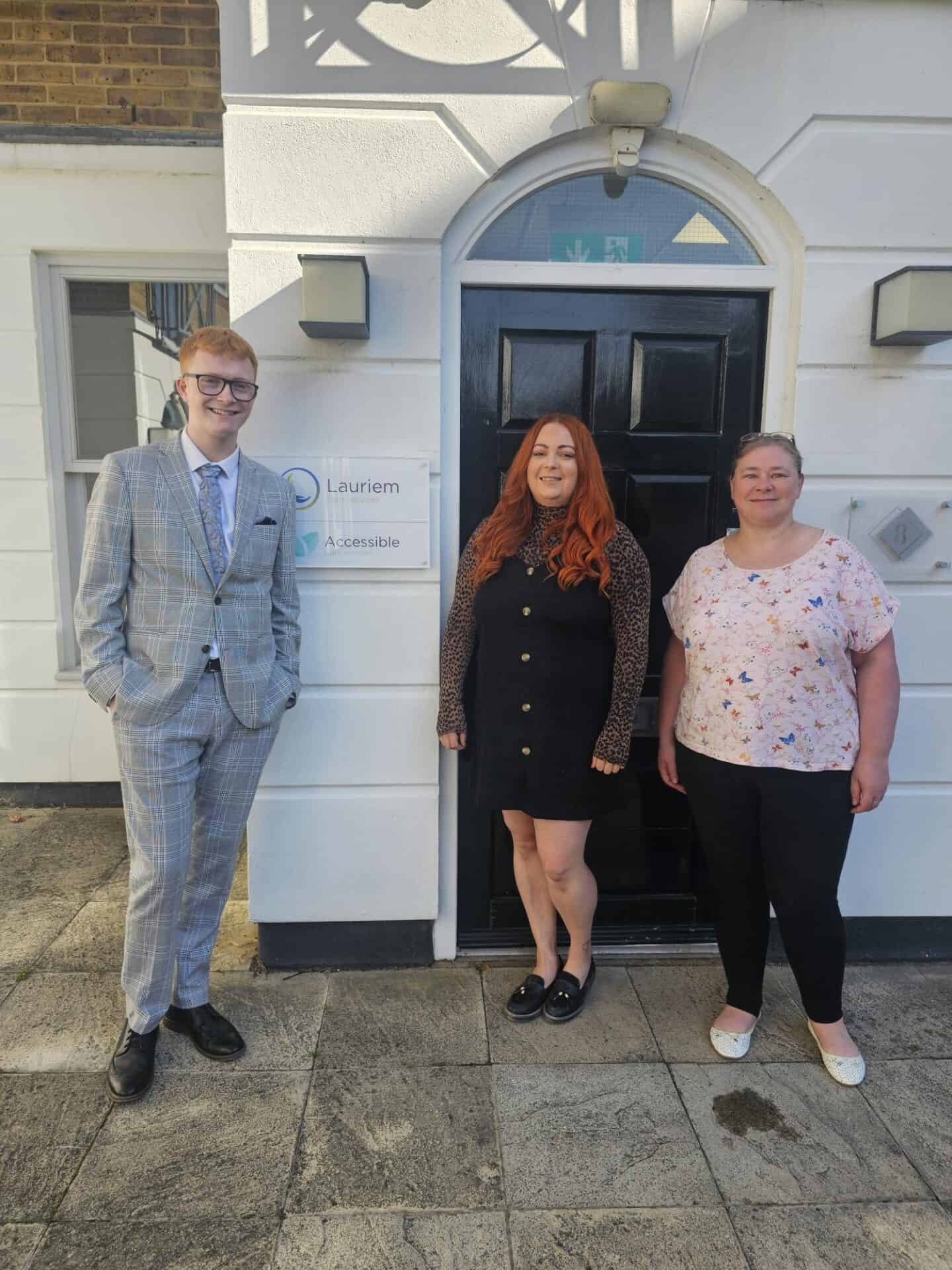At Lauriem Complete Care, we pride ourselves on the training and development of our carers, ensuring that every team member has the knowledge and skills needed to support our clients effectively and, in emergencies, potentially save lives. We recently saw first-hand the importance of this training when one of our carers, Jane Lamb, stepped in during a critical moment, applying her training to help a client during a stroke.
Jane had recently attended a training session that included the F.A.S.T. (Face, Arms, Speech, Time) method for recognising stroke symptoms. During a routine visit, she observed sudden signs that her client was not well: her training allowed her to immediately recognise classic stroke indicators—changes in facial movement, difficulty in raising an arm, and slurred speech. Using her F.A.S.T. training, she quickly assessed the situation and ensured that the client’s wife received the help they needed. Thanks to Jane’s quick thinking and her ability to put her training into practice, the client received medical attention promptly and is now recovering in a London hospital. The client’s family reached out to us, expressing their heartfelt gratitude for Jane’s swift and capable response.
Why F.A.S.T. Training Matters
Strokes are a leading cause of death and disability, with time being the single most critical factor in improving outcomes. The F.A.S.T. method is designed to help identify stroke symptoms quickly:
F – Face: Is there any drooping or uneven movement on one side of the face?
A – Arms: Can the person lift both arms, or is there weakness on one side?
S – Speech: Is the person’s speech slurred or confusing?
T – Time: Time is crucial—acting fast can prevent severe consequences.
This simple acronym is easy to remember, and as Jane’s story shows, it can make the difference between life and death. The prompt recognition and response in the face of stroke symptoms directly affect recovery outcomes, reducing the likelihood of long-term disabilities and, in some cases, even saving lives.
Empowering Carers Through Training
Jane’s experience highlights why we at Lauriem Complete Care place such a high value on comprehensive training for all our carers. Beyond the F.A.S.T. method, our training encompasses a broad range of skills to ensure our team members are prepared to handle various situations. By investing in regular training sessions, we enable our carers to be confident and competent in responding to medical emergencies and to deliver the highest quality of care.
Training isn’t just about acquiring technical skills—it’s also about building trust. When clients and their families know that our carers are well-trained and equipped to handle emergencies, they gain peace of mind. This assurance fosters stronger relationships between our clients, their families, and our team.
Recognising and Celebrating Our Team
At Lauriem Complete Care, we are immensely proud of Jane’s response and all our carers who continue to demonstrate excellence and dedication. It’s moments like these that affirm our commitment to training and development, knowing that our efforts directly impact lives. Jane’s story is a testament to the power of preparedness and the value of continual learning.
The family’s appreciation for Jane’s actions reminds us why training is an essential part of our approach to care. It is a vital investment in our carers’ abilities, equipping them with the skills to act swiftly and confidently when needed.
Looking Ahead
This experience reinforces our commitment to the ongoing training of our staff. We will continue to build on our training programmes, ensuring that all our carers are well-prepared, knowledgeable, and ready to face any situation. By focusing on quality training, we can empower our team and provide the best possible care for our clients and their families.
The F.A.S.T. method is just one aspect of our training, but Jane’s story has shown us all its impact. It’s a proud reminder that when we prioritise training, we provide a service that truly makes a difference.









